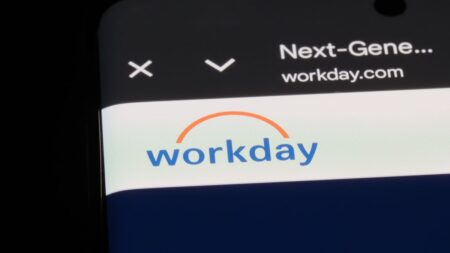
Microsoft has been incredibly active in its mission to empower customers by providing them with access to AI tools. The company consistently releases updates and makes significant strides in AI integration efforts. A notable example of this is the Copilot+ PC.
During a recent Business Applications Launch Event, some of Microsoft’s top minds unveiled the latest wave of updates to the company’s business application suites. Unsurprisingly, the focus was on agentic AI, which dominated the announcements.
However, instead of detailing the specifics of these updates, I want to convey Microsoft’s vision for its business applications suite: to make your company AI-first.
What Is an AI-First Company?
Charles Lamanna, corporate vice president, Business & Industry Copilot at Microsoft, kicked off the event. In the opening minutes, he stated Microsoft’s intention to utilize its services to make its business customer’s companies AI-first. And how will it do this? Through the most modern of trinities, a three-level approach that unites agents, with Copilot, with human ambition.
“We envision a future, with a Copilot for every employee, and an agent for every business process,” says Lamanna. So, what does Microsoft’s vision of an AI-first company look like?
Lamanna noted that every human has an AI assistant at the first level of AI transformation (Copilot). People begin to delegate business tasks to human-led agents at level two. Finally, at level three, agents work autonomously but always based on human guidance. Agents become integral digital team members.
To that end, and circling back on the event’s theme, Microsoft plans to enable this degree of AI transformation by pivoting development over D365, Power Platform, and Copilot Studio to be AI-first.

AI Agent & Copilot Summit is an AI-first event to define opportunities, impact, and outcomes with Microsoft Copilot and agents. Building on its 2025 success, the 2026 event takes place March 17-19 in San Diego. Get more details.
Agentic AI in Practice
How does Microsoft’s vision for an AI-first company play out in practice? Among numerous demonstrations, one example presented by Jeff Comstock, corporate vice president, Dynamics 365 Customer Experience Apps, Microsoft, stood out. It effectively showcased the collaboration between humans and AI agents and Microsoft’s autonomous enterprise vision.
The feature showcased was the Sales Qualification Agent in D365, and the company utilizing this feature was the conveyor belt manufacturer Intralox. During the demonstration, an Intralox sales ops manager assigned a series of leads from a trade show.
The salesperson then provided the agent with various knowledge articles and email examples to give it a foundation for developing its outreach strategy. The demonstration continued with the Sales Qualification Agent selecting a lead and crafting a series of personalized emails to the prospect, which were much more detailed and specific than the standard warm outreach campaign.
Once the prospect indicated high buyer intent, the agent forwarded information about the lead to the human sales agent. This included a timeline of the interactions between the agent and the lead and other relevant information. It was a clear example of humans and agents working in tandem, and it was one of the best I’ve seen to date regarding the quality and proficiency of the agentic AI output.
Closing Thoughts
Lamanna predicts that “we are moving from a world focused on specialization to a world where generalists thrive supported by specialized AI agents.” Given the proficiency of the tools provided by Microsoft to its business users, this could become a reality sooner than we think.
What impressed me about this release wave was the clarity with which it envisioned an AI-first world for companies. The elegance of the triple-headed solution offered by Microsoft to help businesses get there, along with the efficiency and capability of the agents to support this transition, is remarkable.
It’s easy to envision a hierarchical employee structure where everyone has management responsibilities. The trickier concept for many customers, I suppose, is using these management skills to direct digital labor, but I’ve no doubt this cultural shift will happen.
Ask Cloud Wars AI Agent about this analysis










